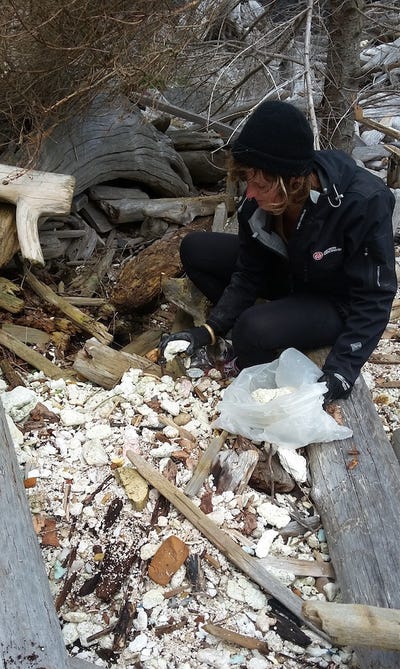Groups Call on Canadian Government to Act on Plastic Pollution
Twelve groups have urged the Canadian government to add plastic waste to the Schedule 1 List of Toxic Substances under CEPA.

Twelve ocean conservancy and environmental groups have requested that Canada’s environment and health ministers take immediate regulatory action on plastic wastes and pollution under the Canadian Environmental Protection Act 1999 (CEPA). They are urging the Canadian government to add any plastic generated as a waste or discharged from the use or disposal of products or packaging to the Schedule 1 List of Toxic Substances under CEPA.
Doing so would allow the federal government to pass laws requiring producers of products containing plastics or using plastic packaging to collect and recycle them; to prevent exports of plastics to developing countries; to require recycled plastics to be used in making products and packaging; to ban single-use plastic items that aren’t collected and end up as litter and marine pollution; and to reduce microplastic waste from clothing and other products that pollute fish Canadians eat.
The 12 groups that have banded together to make this formal and joint request to Canada’s environmental and health ministers are:
Surfrider Foundation Canada
The Ocean Legacy Foundation
Environmental Defence Canada
West Coast Environmental Law
Friends of the Earth Canada
Pacific Wild Alliance
BC Marine Trails Association
Coastal Restoration Society
Sea Shepherd Conservation Society
Greenwave Environmental Consulting
Sea Legacy
Association for Denman Island Marine Stewards
According to a study for Environment and Climate Change Canada, Canada’s plastics recycling rate is 9 percent. Canada landfills or burns 91 percent, or 2.93 million tonnes, of the waste plastic generated each year. Canada’s rivers, lakes and oceans receive an additional 29,000 metric tonnes of plastic litter—the equivalent of 9.7 billion coffee cup lids.

A systematic review of data from 139 lab and field studies by researchers at the University of Toronto concluded “… that there is evidence that plastic pollution of all shapes and sizes can affect organisms across all levels of biological organization. There is no doubt that plastic pollution can have an impact on wildlife, and there is compelling evidence suggesting macroplastics are already impacting marine populations, species and ecosystems.”
“We see discarded plastic bottles, bottle caps, cigarette butts, fishing nets, buoys, crab trays, ropes and polystyrene all along the coast and in the coastal waters of British Columbia,” said Chloé Dubois, president of The Ocean Legacy Foundation, in a statement. “We can see it, scientists say it is having an impact and other jurisdictions are taking action. It is time we start treating plastic pollution as a solid form oil spill that it is. We need to act now.”
On May 21, the European Union took decisive action against plastic pollution, stating that 80 to 85 percent of marine litter, measured as beach litter counts, is plastic, with single-use plastic items representing 50 percent and fishing-related items representing 27 percent of the total. Single-use plastic products and fishing gear containing plastic are therefore a particularly serious problem in the context of marine litter, pose a severe risk to marine ecosystems, to biodiversity and to human health and damage activities such as tourism, fisheries and shipping.
“On December 22, 2018, Motion 151 passed unanimously in the House of Commons,” said Michelle Hall, vice president of the Surfrider Foundation Canada, in a statement. “It calls for, among other things, the regulation of single-use plastics, the development of a plan to clean up derelict fishing gear and marine debris and regulation to make companies making plastic products and using plastic packaging responsible for collection and recycling. The Canadian government has a powerful mandate from an overwhelming majority of Canadians to stop our plastic problem from being exported and to tackle it here and now.”
About the Author
You May Also Like


.png?width=300&auto=webp&quality=80&disable=upscale)